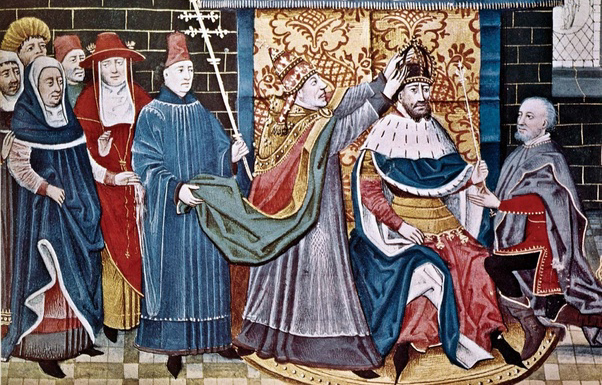Why was the Emperor of the Holy Roman Empire never able to hold the nobles of the empire in check? The Emperor of the Holy Roman Empire faced several significant challenges in maintaining control over the empire’s nobles, leading to a relatively decentralized and fragmented political structure. Here are the main reasons:
Elective Monarchy:
The position of Holy Roman Emperor was optional rather than hereditary. Seven powerful prince-electors chose the emperor, giving these electors substantial leverage over imperial authority. The emperor often had to make concessions to secure their support, weakening his ability to centralize power.
Territorial Fragmentation:
The Holy Roman Empire was a patchwork of hundreds of semi-autonomous territories, including duchies, principalities, free imperial cities, and bishoprics. Each of these territories had its own local rulers, laws, and customs, making it difficult for the emperor to impose a uniform policy or exert direct control.
Legal and Institutional Constraints:
The imperial constitution and various legal frameworks, such as the Golden Bull of 1356, codified the rights and privileges of the nobles and limited the emperor’s power. The Reichstag (Imperial Diet), a legislative body composed of representatives from various territories, further restricted imperial authority by requiring the emperor to seek consensus on major decisions.
Economic and Military Limitations:
The emperor often lacked the financial resources and military power to enforce his will across the vast and diverse empire. The decentralized nature of the empire meant that local nobles controlled their own armies and revenues, reducing the emperor’s ability to project power.
Religious Division:
The Protestant Reformation in the 16th century exacerbated existing divisions within the empire. The religious conflict between Catholic and Protestant states weakened imperial authority and led to a series of wars and conflicts, such as the Thirty Years’ War (1618-1648), which further decentralized power.
External Pressures:
The Holy Roman Empire was frequently involved in conflicts with external powers, such as France, the Ottoman Empire, and other neighboring states. These conflicts drained resources and attention, making it more challenging for the emperor to focus on internal consolidation.
Dynastic Interests:
Many emperors, particularly from the Habsburg dynasty, had extensive lands and interests outside the Holy Roman Empire. Balancing these wider dynastic concerns with the administration of the empire often led to conflicts of interest and a dilution of focus on internal governance.
These factors collectively prevented the Holy Roman Emperors from effectively centralizing power and keeping the nobles in check, leading to a fragmented and decentralized political entity.


